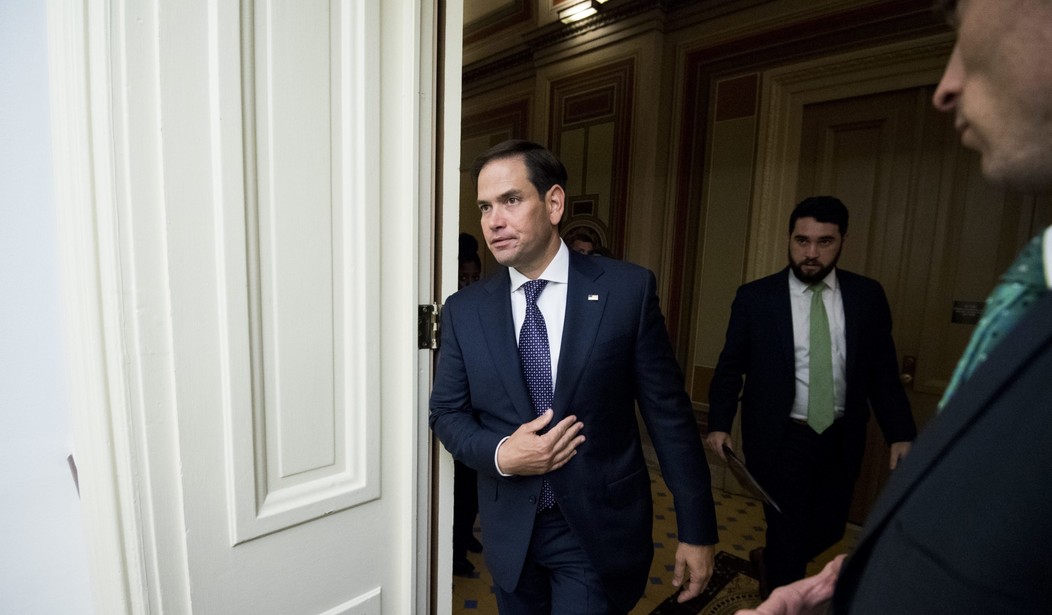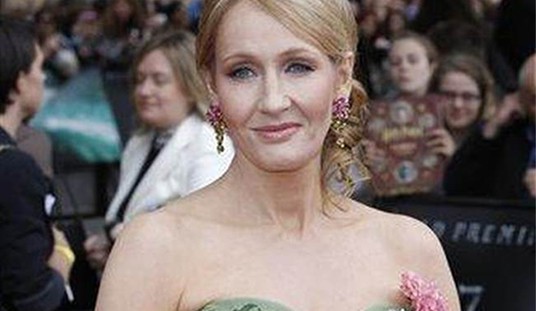WASHINGTON – Sen. Marco Rubio (R-Fla.) questioned “the logic” behind the White House’s decision to offer a path to citizenship for undocumented immigrants who were not part of President Obama’s original Deferred Action for Childhood Arrivals program.
The Trump administration’s latest immigration proposal provides “legal status for DACA recipients and other DACA-eligible illegal immigrants, adjusting the timeframe to encompass a total population of approximately 1.8 million individuals.” It also includes funding for a border wall system and ends “extended-family chain migration” along with the visa lottery.
PJM asked Rubio if he thinks Republicans would have to cover more than 1.8 million people to gain enough Democratic support for an immigration deal.
“I don’t think they’re going to go further than that and I think there’s some resistance. It’s not that I’ve taken a firm position against it, because in the end I’m prepared to be flexible in order to get something done,” the senator told PJM Tuesday on Capitol Hill. “But I do have questions about why should the protections be extended, expanded beyond people that actually signed up for the program when it was available before?”
When asked if he prefers legal status for the undocumented immigrants covered under the original DACA protections, Rubio replied, “That’s been my preference. I’m not prepared to tell you that I would not support something that does expand it or goes further, because in the end I have to see the total package. But I just have some questions about the logic of it.”
Rubio elaborated on his personal opinion about the DACA program, created by Obama in 2012.
“I personally think that if you didn’t apply for DACA when it was available, you know, why should you benefit from this now? But that’s something we may have to give in on in order to get something done. I don’t know. Certainly the White House’s position is different than mine. They’re ready to do the 1.8 [million],” he said.
Many Democrats have expressed opposition to Trump’s proposal, particularly over the elimination of the visa lottery and family reunification beyond spouses and minor children. Rubio called the criticism from Democrats “premature.”
“This is Donald Trump. He ran on enforcement, building a wall, and he offers to give citizenship to 1.8 million people. You know? But that said, I mean, I don’t think enforcement is a favor. It’s something this country should be doing. And in 2013, the now much-reviled Gang of Eight bill got rid of parents and siblings coming in through migration – they’ve agreed to that before. In 2013, the diversity lottery was done away with, so these are issues that people have agreed on in the past,” Rubio told PJM.
“But ultimately on March 5, potentially, the people under DACA are not going to have the ability to stay here and work so, you know, they have to agree to something,” he added. “Now, I understand their positions and I get it, you know, on their side there’s politics, too. But ultimately, in order to get a deal done on DACA, you’re going to have to do something on the border and are going to have to do something potentially about the future structure of immigration.”
Rubio also said the 2013 immigration reform bill included $42 billion for physical border walls and additional security measures.
“So a lot of these things have already been agreed to, and hopefully cooler heads will prevail,” he said.
PJM asked Sen. John Hoeven (R-N.D.) if he would support an immigration bill that includes Trump’s proposed path to citizenship for 1.8 million DREAMers.
“He’s laid a framework. We’re going to work with him and with the House. We’ve got to address border security and we also have to address enforcement of our immigration laws as well as chain migration and the visa lottery system and, of course, address DACA,” Hoeven told PJM on Tuesday.
“So, it’s all going to be part of the ultimate package that gets put together and obviously we’ve already been working on it. The House has some legislation. We’ve got, obviously, a number of bills we’re looking at, the administration is putting some forth – that’s how it works,” he added.
Hoeven said offering protections to the existing DACA recipients, along with some border security measures, could serve as a simpler “starting point” that Congress could build on in the future with another bill.
“So, I don’t know how this is going to go. I think that’s an option and something we could look at, sure – so they’ve talked about different size packages, and you take that as a first step and make sure you get DACA done and get border security done, so it’s possible we can go that way and then come back and try to address some of the immigration reform issues,” Hoeven said. “So, we’ll see.”









Join the conversation as a VIP Member